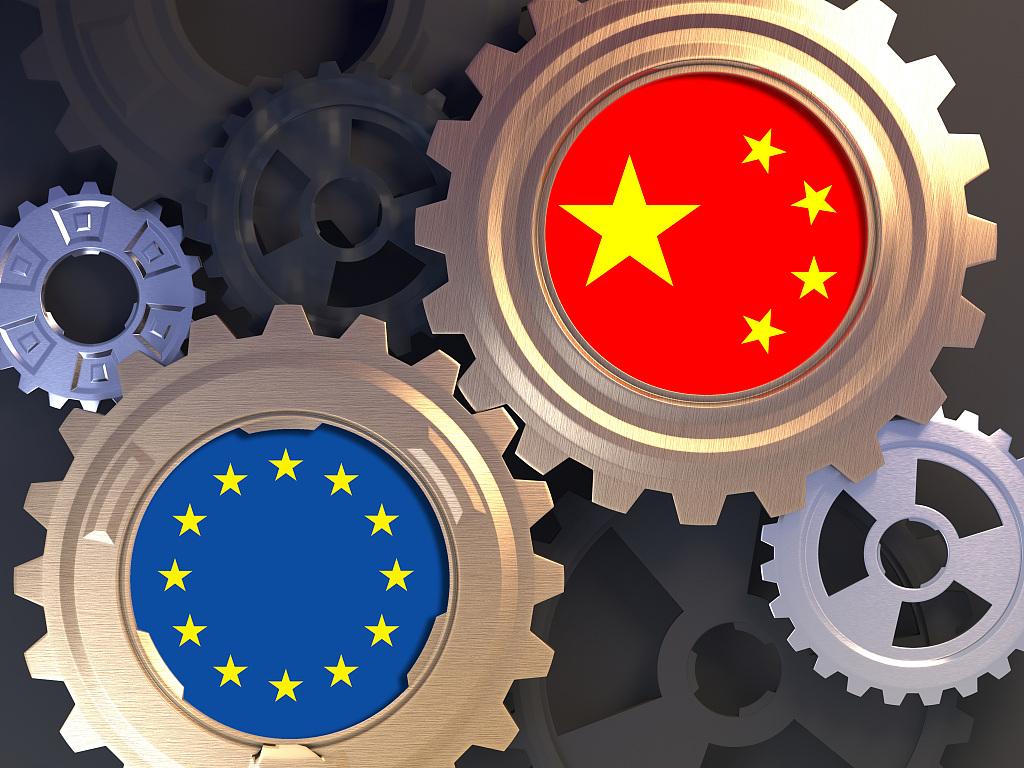Getting China-EU relations right
- By Hannan R. Hussain
 0 Comment(s)
0 Comment(s) Print
Print E-mail China.org.cn, May 18, 2023
E-mail China.org.cn, May 18, 2023

[Photo/VCG]
At a time when the European Union is urged to maintain an objective and correct perception of China, EU foreign ministers appear keen to back a plan to reduce the bloc's so-called economic dependence on China. The proposal also calls for a deeper focus on Beijing's role as a self-identified "political rival." According to foreign policy chief Josep Borrell, initial support was communicated in a meeting of top EU officials in Stockholm, part of a "recalibration" of EU strategy on China.
Brussels' fear of being drawn into the U.S.'s "zero-sum" competition with China is at the heart of the recalibration push and should warrant greater partnership with Beijing to advance a truly multipolar world order. China has consistently echoed Brussels' concerns over unchecked U.S.-China competition, including on the sidelines of the G20 Foreign Ministers' Meeting last year. Senior Chinese diplomat Wang Yi underscored joint imperatives to oppose "zero-sum games" with EU foreign policy chief Borrell. Thus, Brussels should view China as a partner to strengthen the EU's strategic autonomy amid hardening competition with the U.S., rather than a rival subject to so-called "de-risking" in a range of economic fields.
The EU's proposed policy adjustment plan on China will also benefit from a drastic rethink of self-identified economic "dependency" on China. "Today, we have dependencies on China, with respect to the digital transformation, that is bigger than the ones we had with Russia," said Borrell at a press conference after the Stockholm meeting.
It is in the interests of EU ministers to interrogate the logic of "economic dependency," given China's firm opposition to any monopolization of power or resources, as reaffirmed through Chinese State Councilor and Foreign Minister Qin Gang's visit to Europe. The EU's two-decade strong comprehensive strategic partnership with China has scored substantial economic and trade benefits home, including a 96.6% year-on-year surge in EU investment in China last year. Both sides continue to invest in a working consensus to protect global industrial supply chain vulnerabilities, a key consideration for EU ministers that wish to protect rising global competition from "affecting all policies areas."
Hence, leaving the "rival-partner" dichotomy unresolved in the EU's policy plan risks understating the economic and strategic strengths of its relationship with China.
Recent visits by senior Chinese diplomats to Europe underscored the EU as a top priority in China's foreign policy. For instance, Foreign Minister Qin's high-level engagements in France gave hope to a working consensus on developing more resilient transnational supply chains that benefit Europe at a time of heightened economic uncertainty. At the same time, Qin proposed a three-fold proposal to drive China-Europe relations forward, calling for an "inclusive worldview," commitment to "a progressive view of history," and "upholding the perspective of mutually beneficial and win-win cooperation." Such principles have played a valuable role in cultivating strategic mutual trust through established mechanisms and can support EU ministers' efforts to maintain a healthy balance in its future relations with China.
The EU's policy document also assumes that "systemic rivalry" is likely to feature in almost all areas of engagement with China, ignoring the importance China associates with Europe to address major global issues. Common-ground ranges from resolving protracted conflict in Ukraine through Special Envoy Li Hui's visit to Europe to addressing barriers to free and open market investments in wide-ranging talks.
The EU's high command is prudent in its recommendation that governments should remain consistently engaged with Beijing amid a climate of intensifying competition with the U.S. Such prescriptions are a far better alternative to attracting what the policy plan describes as "essential" U.S. support to inform China-EU relations. Such a trajectory could challenge efforts to achieve a China-EU relationship that is "not targeted at, subjugated to or controlled by any third party," as affirmed by the Chinese Foreign Ministry recently. For the EU to maintain its principled opposition to any "zero-sum" contest, it should build on its stated desire to partner with Beijing on global issues and avoid misconstruing its partner as a political rival.
An EU approach calibrated in light of such wisdom stands the best chance to consolidate relations of mutual trust with an eye on the future.
Hannan R. Hussain is a foreign affairs commentator, author and recipient of the Fulbright Award. For more information please visit:
http://www.ccgp-fushun.com/opinion/HannanRHussain.htm
Opinion articles reflect the views of their authors, not necessarily those of China.org.cn.





